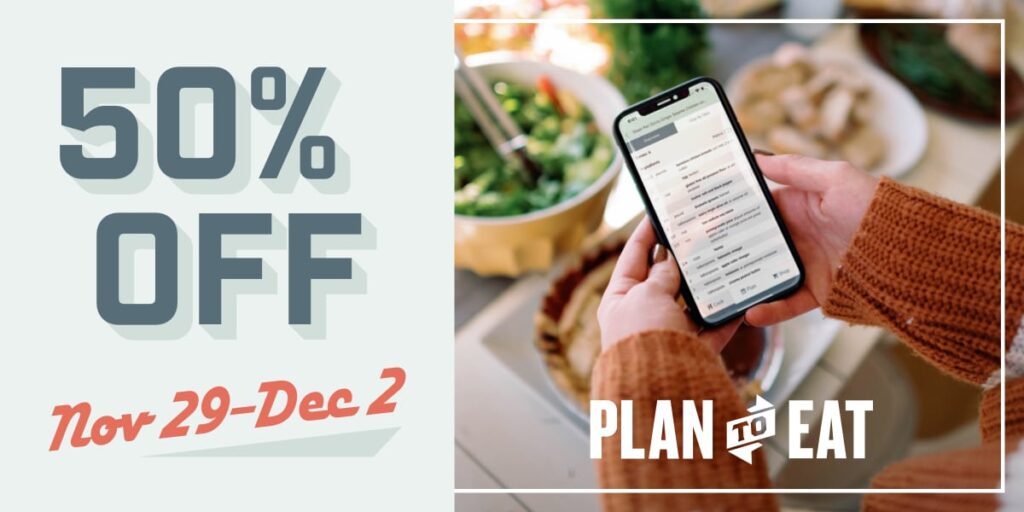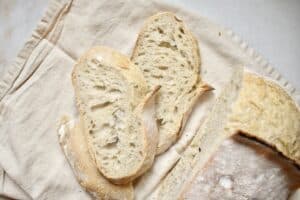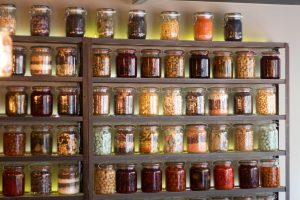Over the past several months, we’ve covered different methods of meal planning like using a planning template, planning around your schedule, planning around what you have on hand, planning for small households, and planning for large households.
We each have a different style of meal planning to suit our family’s needs and lifestyle and hopefully this blog series has helped you discover a new way of planning or validated your tried and true methods! Today, we’re rounding out the series by seeing how to use leftovers as the foundation of your meal plans.
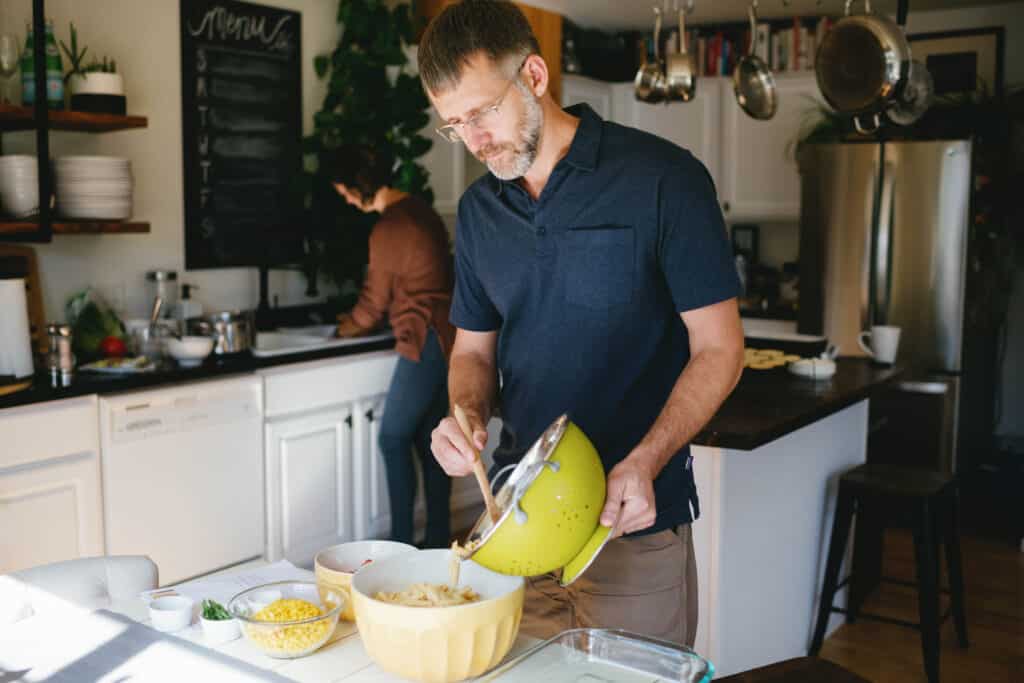
How it’s done.
Here’s Plan to Eat customer, Kylie, uses leftovers as the base of her planning:
I only cook every other night. As a result, we are guaranteed to have leftovers several times a month. To get around the monotony of eating the same thing two nights in a row, I try to use slightly different sides between the nights.
For a Spanish rice recipe, I’ll serve it with tortilla chips the first night, and maybe put all of it in a tortilla with a little extra cheese the second night. If I make curry, I can serve it over potatoes the first night, and rice the second. (Whenever I make rice, I always make extra to freeze, and it only takes a bit of time and water in the microwave to have rice ready in a pinch.) Switching up frozen bags of veggies from one night to the next helps too.
Another tip: If the recipe ends up making a lot more than I need, sometimes I’ll make a bun recipe, and when it’s time to form the buns, I’ll roll out the raw dough, use the leftover food as filling (thickening with cornstarch or flour if needed), and seal the bun around it. Then you cook the buns, and you have hot pockets ready to go! You can vacuum seal them and they last several months.
You can also fill pizza dough instead if you want more of a calzone, or pie crust if you want a hand pie. Pie crust is the most difficult and time intensive for sure, pizza crust is the easiest to make, but my favorite tends to be the stuffed rolls. I’ve filled rolls with things like macaroni and cheese with pulled pork, curry, chicken Parmesan, and sweet potato hash. I’ve filled calzones with all kinds of pizza toppings. For hand pies, I’ve used pot pie fillings and even cottage pie. Before I had each of my kids, I made around 250 and froze them- they were a lifesaver in the newborn days! Now I make them with leftovers as I have enough to fill 12 rolls or so, and they go in the freezer for easy lunches or days when I don’t have energy to cook.
Kylie is a master at maximizing leftovers to ensure she doesn’t waste any food and that she always has a variety of meals on hand. One complaint many people have about leftovers is the lack of variety, but switching up your side dishes from night to night can help alleviate the feeling of repetitiveness.
I also love how Kylie uses the freezer as a repository for any leftovers she’s not going to use right away and then turns those leftovers into a side dish for another night. She has really figured out how to be efficient with food!
Her idea for creating homemade “hot pockets” with bun or pizza dough is the work of a creative genius. This system might seem time consuming, but I’m sure the more Kylie used this method to save leftovers the easier it became. I love this idea because it virtually eliminates food waste since you’re adding any leftovers you’re not going to eat into a bun and freezing it. The buns are also portable, easy to reheat, kid-friendly, and adaptable to whatever type of dough you have on hand, or can easily make.
And what a great way to prepare easy meals when you’re expecting a child or going through a life event that could prevent you from cooking regularly!
Personally, I plan for leftovers often and find it saves me money on groceries because I’m preparing fewer meals and simply increasing the quantities of the food already on my list. It’s much more expensive to buy unique ingredients for a new recipe every day of the week than to buy the same ingredients in a larger quantity. And you can often take advantage of bulk deals that way too!
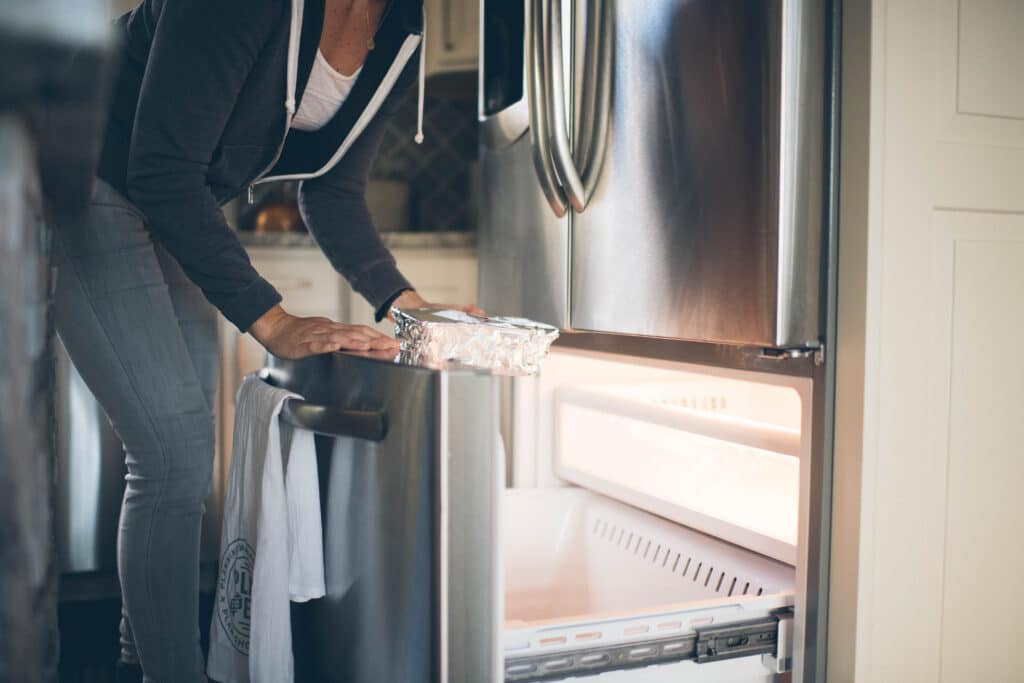
How Plan to Eat can help.
If you want to start utilizing leftovers in your meal plans, the first step is to plan less. Since you’re going to eat the same (or similar) meals more than one day a week, you’ll want to plan fewer recipes so you don’t end up with too much food.
The next step is to increase the serving sizes of your recipes to accommodate leftover portions. If you’re feeding four people and want an extra night of leftovers, simply double the recipe. But if you want to be able to freeze a few servings, be sure to increase even more.
When it comes to adding these recipes to your Planner, you can add leftover notes to remind yourself to eat what you’ve already prepared. And if you want to switch up side dishes for your additional servings, be sure to add those to the calendar too.
If you want to freeze your leftovers, you can do that retroactively with the Plan to Eat Freezer. After you’ve eaten your meal and know how many leftovers you have, select that recipe on your Planner and hit “Prep for Freezer”, then you can add in the custom servings you will be retroactively freezing. Watch this quick video for a tutorial on how to do this!
Meal planning with leftovers as the base for your week can save time in the kitchen, since you won’t be cooking every night, and prevent leftovers from going to waste. Even if you’re not a fan of eating leftovers, follow some of Kylie’s advice to either switch up your side dishes or make homemade hot pockets!
I hope this blog series has helped you feel equipped to meal plan in the way that works best for you and your family!

